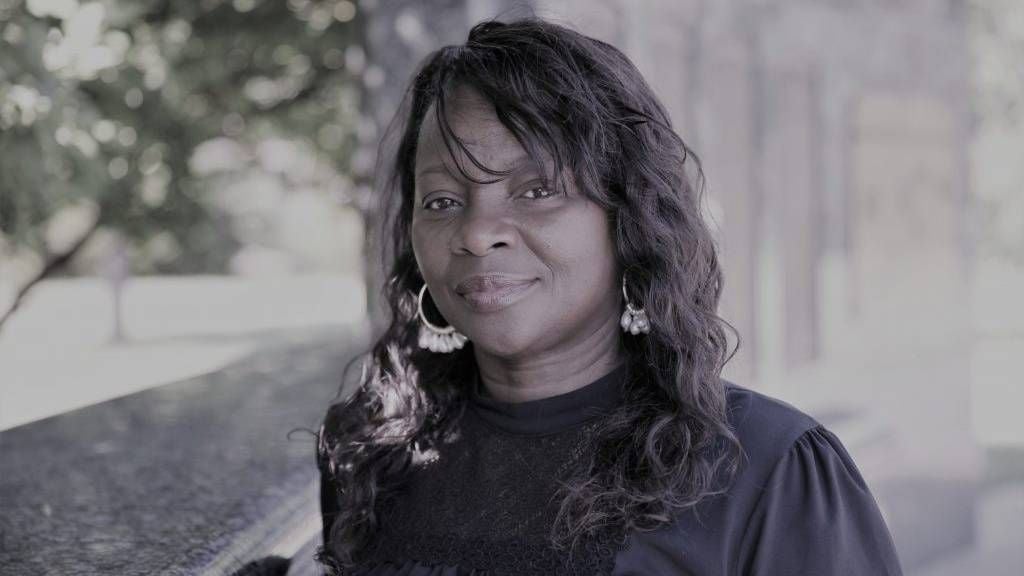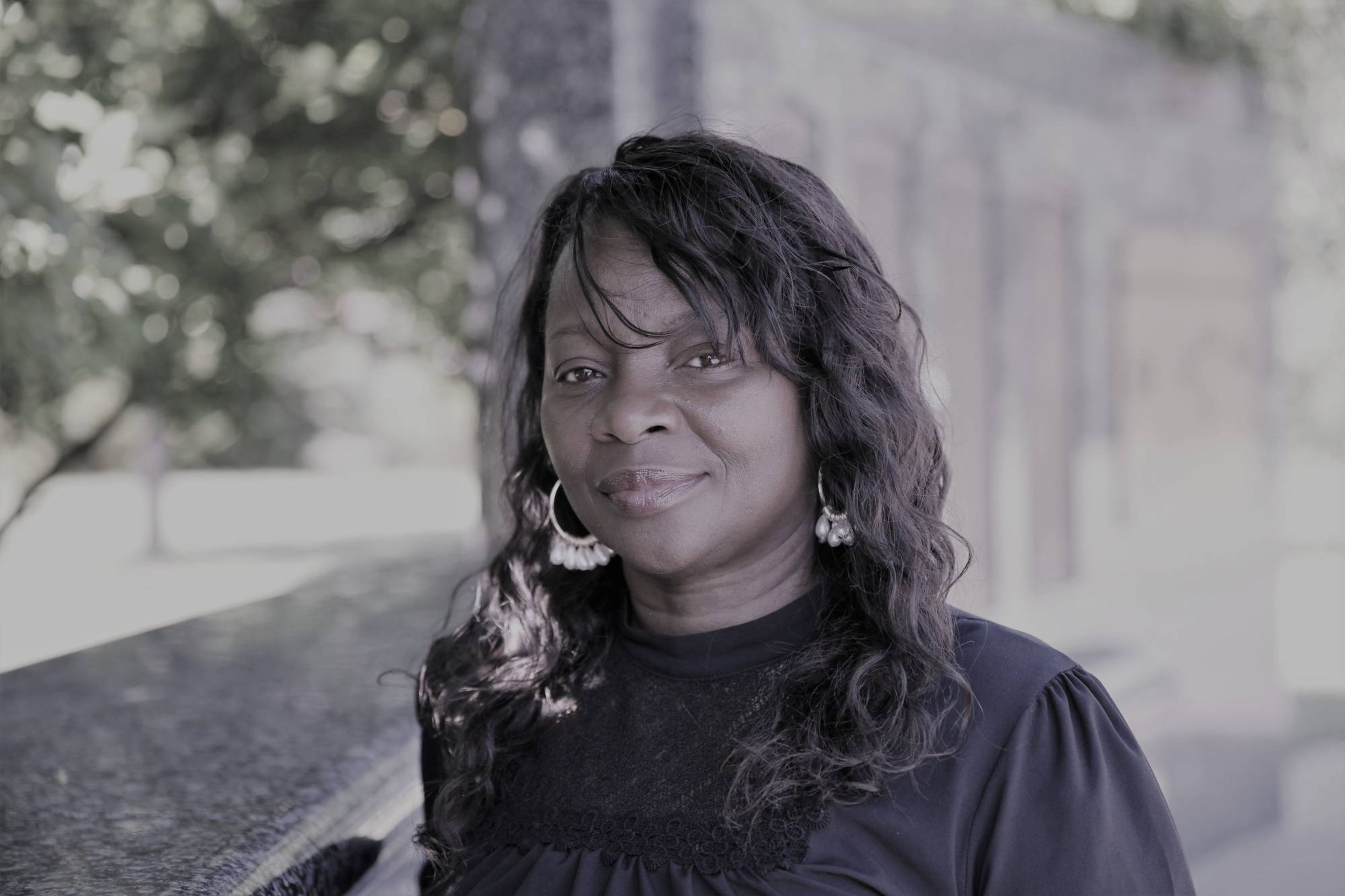Sheila Webb Brings Her Own Folding Chair
In her own words, the Ward 2 City Council Member candidate discusses her inspiration for getting involved in politics and what sustains her on the campaign trail.


Shirley Chisholm once said, “If they don’t give you a seat at the table, bring a folding chair.”
I took that literally and moved forward with having my voice heard. Not only do I want to be heard, it's necessary that I push the voices of the people. There is a vulnerability to putting your name in the race, especially for a 52-year-old school social worker seeking office for the first time. My life instantly went from being defined as typically standard to routinely random.
I spent the last several years content with being off during the summer. Unlike previous years, the season of sunshine and summer fun was being put on hold this year in the wake of the pandemic. Not to mention, George Floyd’s death had communities in distressed mourning. The existence of social turbulence and COVID-19 intensified the need for support in various communities. In the latter part of May, I volunteered my mornings and afternoons to delivering food to households. I spent countless hours, five days a week, packing and organizing food boxes with the help of my 7-year-old granddaughter and 5-year-old grandson, teaching them the importance of helping others.
I was moving full force, getting up each day with an added purpose and doing something I felt was substantial for people. In a swift turn on June 1st at around 2:03 pm, I filed to run for Robbinsdale City Council. In the moment, I was excited and ready to learn the ins and outs of how to campaign. As I was driving home, I realized signing on to run for office meant signing off on the volunteer work.
Within 24 hours of filing to run for City Council, I was undeniably struggling with my decision. I wanted to campaign and make a difference, but I also wanted to continue to support communities in need. I was torn, and the more I thought about it, the more I convinced myself I could do both. It didn’t take long for me to realize I had to make a choice, and so I chose the journey to seek the seat.
The work of campaigning is beyond lit dropping and phone banking. There are barricades to conquer. I understand the battle of walking in unknown territory; prepping before leaving home; making sure I have my identification, business card, cellphone charged and my feelings tucked away. I canvas in peace, conscious of my voice volume, and make sure my literature is showing as I walk up to each house, eliminating any fears that I am a threat.
The mission of building networks, fundraising and forming a solid team is no easy task; yet I’m dedicated in giving this run everything I have within my whole being.
The sacrifices are daily and, in a split second, a minute expands to an hour. Every day, my appreciation for time increases. There are moments when I feel like I’m a day ahead of the calendar, simply because my body won’t pause. The detriment of not owning your own space and exceeding management of your time becomes a battle within yourself, trying to balance priorities and measure up to expectations of working hard to get what you want. It's difficult when you realize you’ve gone days without talking to the people who are near and dear to your heart, while spending hours reaching out to people you don’t even know.
This commitment is real and, before you know it, the takeover happens and the politics, that were once non-relevant, have become a huge part of your life. This journey for City Council is nothing compared to what African-American women experienced during the Suffrage Movement, and over 100 years later, the challenge of being a woman, and Black, in politics, still comes with struggles reflective of the past. Each time I canvas the city, I’m humbled with gratitude, placing high regard for Black women like Ida B. Wells, Mary Church Terrell, Mary Ann Shadd, Frances Ellen Watkins Harper and Nannie Helen Burroughs, who risked their lives to fight for voting rights while calling out racism. You would be amazed by the courage these women exhibited during late 1800’s to the 1900’s: They experienced racist reprimand for being bold and brave contributors of women’s suffrage. I can relate to that lack of validation - it's that feeling you get when you work hard and receive no acknowledgment.
It’s sad to think that the issues of racism and sexism still exist, not only in politics, but in everyday life. For the sake of limiting repeated trauma, I decline to disclose the worst encounters.
It’s never easy to hear the unpleasant stuff, and I’m always shocked by the audacity of racism. Yet I remain positive and optimistic about HUMANITY.
For every racist remark I’ve heard on the campaign trail, there are several inspiring comments that have an everlasting place in my heart. The affirmations make a difference and keep me encouraged, especially when I’m told, “Thank you for running.”
There are people in the community who see me as a woman who should be at the table, a depiction of the female gender. There are also people in the community who see me as a person of color, running in representation of diversity. Let me state, “I AM A Black Woman,” representing CHANGE, in a city that is 81% white. Therefore, until there is change, I’ll keep showing up with my folding chair.

Sheila Webb, MSW, LICSW, currently serves as chair of Robbinsdale's Human Rights Commission and also works as a Licensed Clinical Social Worker. In her work, she has supported adults struggling with chemical dependency and mental health issues, homeless families, children in foster care and elementary school students. She is currently running for Ward 2 City Council Member. Discover more about her goals for the city of Robbinsdale.
Editor's note: We believe in the power of voice - and our "Perspective" features allow people in the communities we share to give voice to their experiences, in their own words.

This story is part of the digital storytelling project Racism Unveiled, which is funded by a grant from the Otto Bremer Trust.
Like Sheila Webb, Alberder Gillespie was motivated by the police killing of George Floyd and led a charge of 40 Black women to run for office. While she didn't win her primary, she is committed to staying the course to advocate for change in the face of systemic racism and to wake Minnesotans up the to power of the Black vote.
Along with other urban centers across the country, the Twin Cities have a history of racially discriminatory housing covenants that prevented people of color from buying homes in certain neighborhoods. That history ripples in the present-day affordable housing crisis: By limiting opportunities for home ownership, people of color were stripped of one key way to build equity over time. Discover more in “Mapping the Roots of Housing Disparities in Minneapolis.”
A surge of minority voices has responded to the police killing of George Floyd. In the weeks since Floyd uttered, “I can’t breathe,” as ex-Minneapolis Police Officer Derek Chauvin pressed down on his neck, a new collective of individuals is taking action by running for office, engaging in politics and stirring change among youth. But is the momentum a movement or a moment?
